Pacific Drive preview - a motor of life and death
Shift into gear
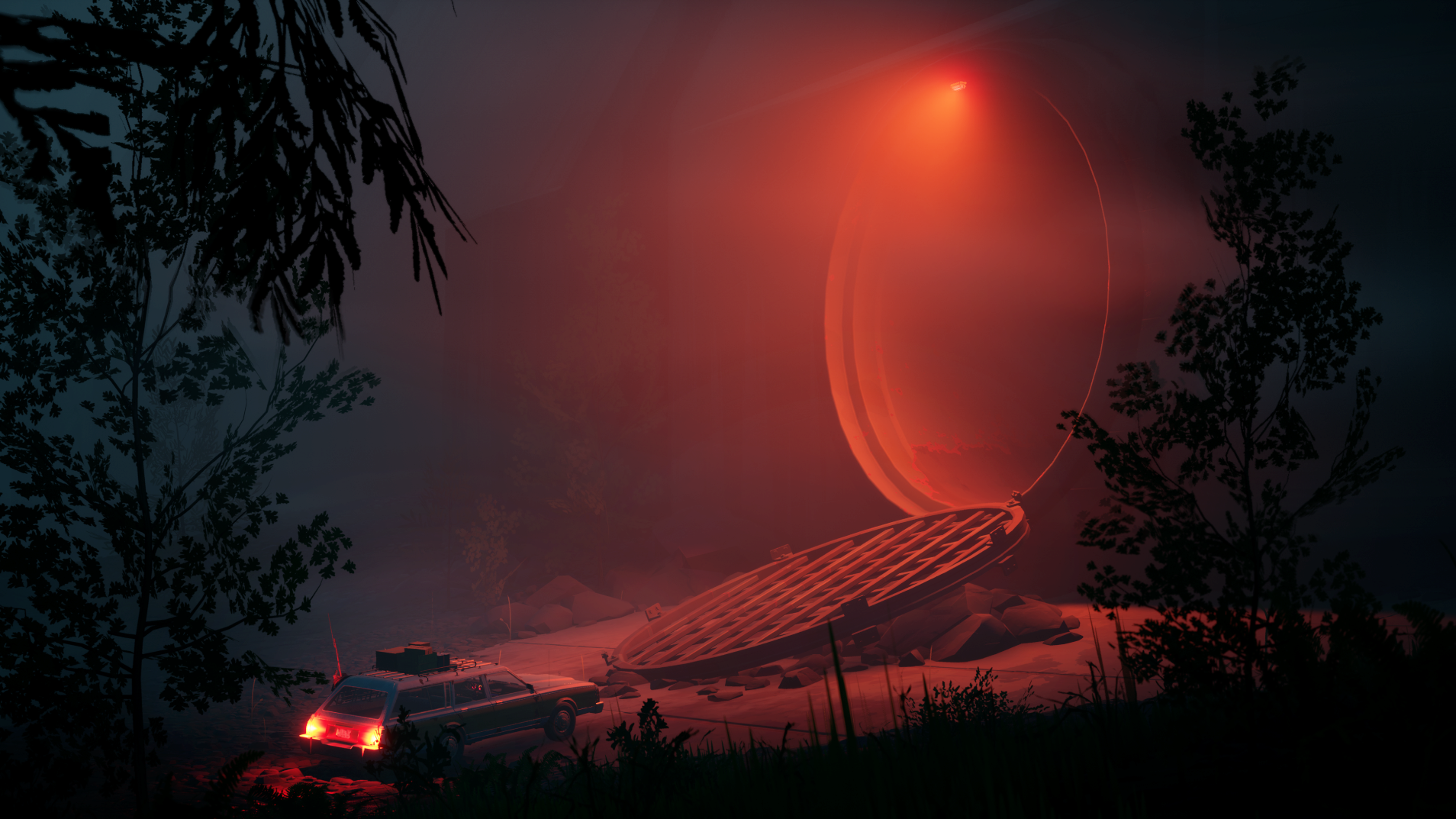
Has a place ever just felt, wrong? You may find yourself in a dimly lit abandoned street, standing in a strangely quiet apartment block, or walking through an empty department store, and you get a bad vibe like something out of view is seriously dangerous. If you know what this feels like then you’ll recognize the suffocating atmosphere in Pacific Drive.
Your story in the now-abandoned government-quarantined area, the Olympic Exclusion Zone, begins with an agitating chase scene as you drive through a dark pine forest dodging red mist. Even without being told, you know that whatever is behind you is deadly, but you have no clue what it really is.
This lack of knowledge follows you throughout Pacific Drive. Despite characters giving you some explanations for the occurrences, most of the activities are unexplained. All we know for sure is that the government built The Olympic Exclusion Zone after strange supernatural dangers began to pop up over the Pacific Northwest. The rest of the world has now forgotten this unusual place, and only you, a mysterious outsider, are able to discover what has been left behind in the Zone. This premise transforms the pine woods of the Pacific Northwest into a giant liminal space (an empty place that appears eerie and surreal).
Ignorance may be bliss, but it’s not an excuse for not being prepared. Using a car as both your primary weapon and haven, you must plan for the worst and hope for the best. I made sure to stock up on supplies, gasoline, and spare parts before each drive into the unpredictable Zone.
Upgrades people, upgrades
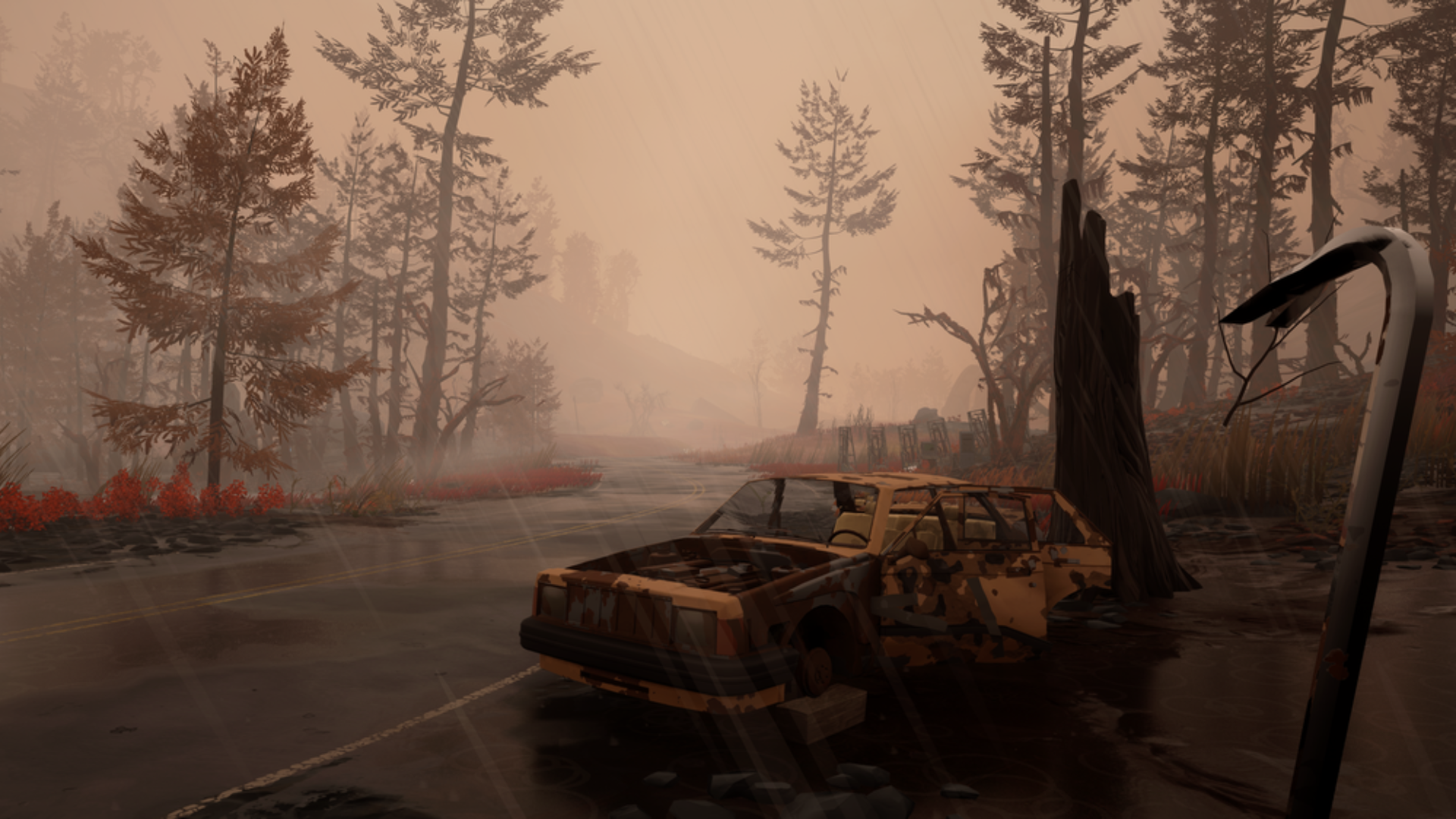
In Pacific Drive, upgrades for your vehicle aren’t aesthetic or a second thought you use to fill time. They are essential; you won’t last long without them. After dragging a rusty old car into the workshop, which doubles as transport and a safe room, I was tasked with making some much-needed changes before heading out again in search of more materials.
The sheer amount of choice available when changing parts to your car can be overwhelming at first. Luckily, the developers, Ironwood Studios, give you plenty of time to tinker with your station wagon; there are even helpful prompts that explain the best ways to fix and change out various parts.
After a good lick of fixing jelly, which takes the rust clean off, and perhaps a new tire or two, you’re ready to take on your first mission in the Zone. You’re also given a helpful guiding system by the reliable yet grouchy workshop owner. This high-tech device allows you to navigate through the perilous pine woods to areas of interest that hold a high density of lootable items and important buildings. While the guidance system may tell you it’s a three-hour drive to various parts of the map, you can jump to locations via gateways. These shortcuts chop exploration down into bite-sized, manageable chunks.
Get daily insight, inspiration and deals in your inbox
Sign up for breaking news, reviews, opinion, top tech deals, and more.
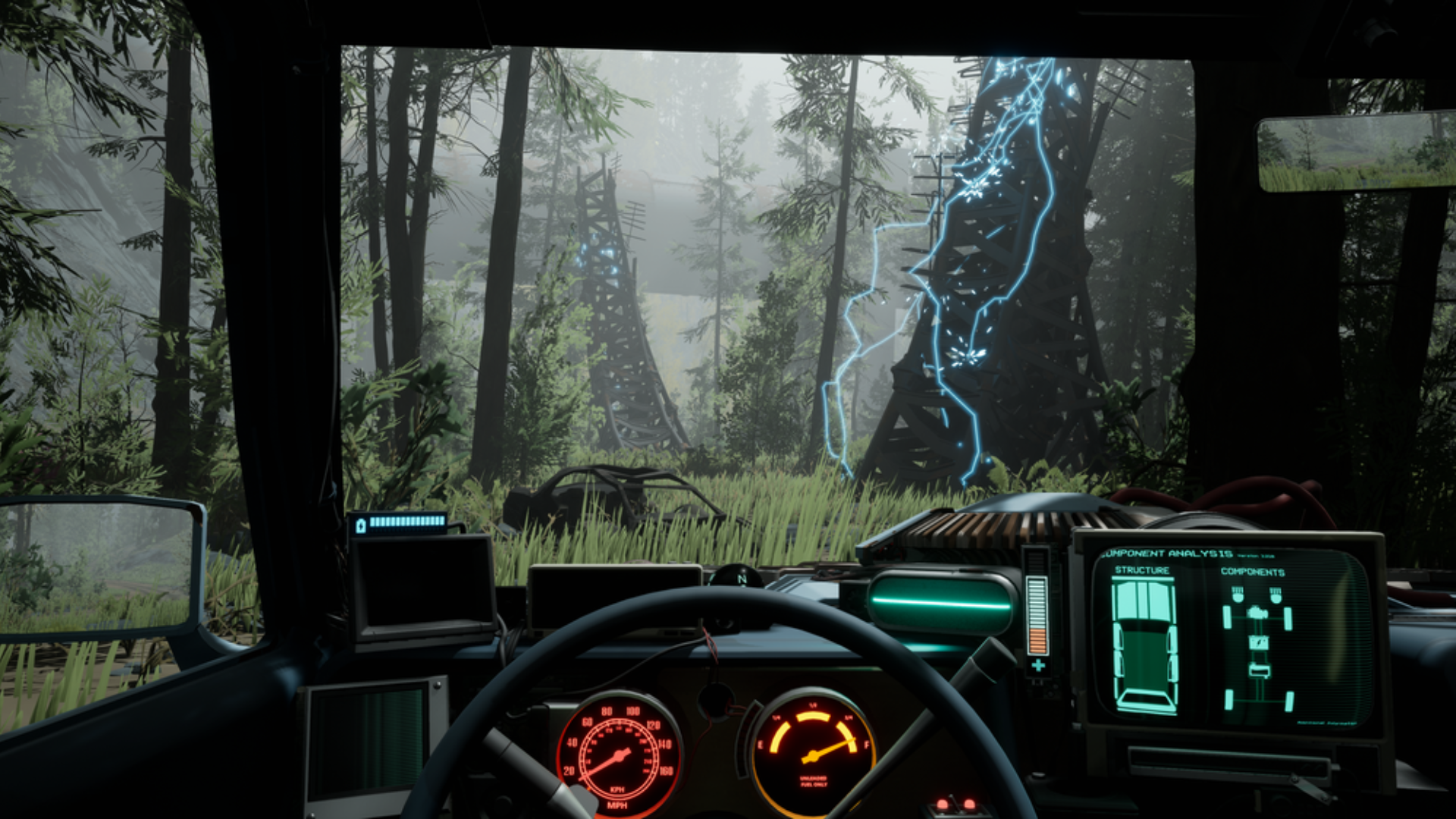
Once you get to your destination, you’ll encounter plenty of unusual entities. The first few places house flying green robots that scan the environment while gibbering on about some mission objective that they’ll never complete, while gigantic stone pillars can rise from the earth at a moment's notice, catapulting any poor thing (read: me and my car) caught in its ascent.
While I only got thrown into the sky once, my car stayed out of harm's way for the most part. However, thanks to my own stupidity and one very rocky offroading adventure, I soon needed some desperate repairs and a new bumper.
Luckily, the trunk of your vehicle is kitted out with storage boxes for helpful trinkets and resources, as well as a crafting table. After raiding a couple of trailers for resources as well as destroying every metal object within a five mile radius, I was able to craft tons of fantastic new parts for my car. Turning my station wagon into a Ship of Theseus-type situation, as by the end of one expedition I had essentially returned with a completely new car.
Lifelines
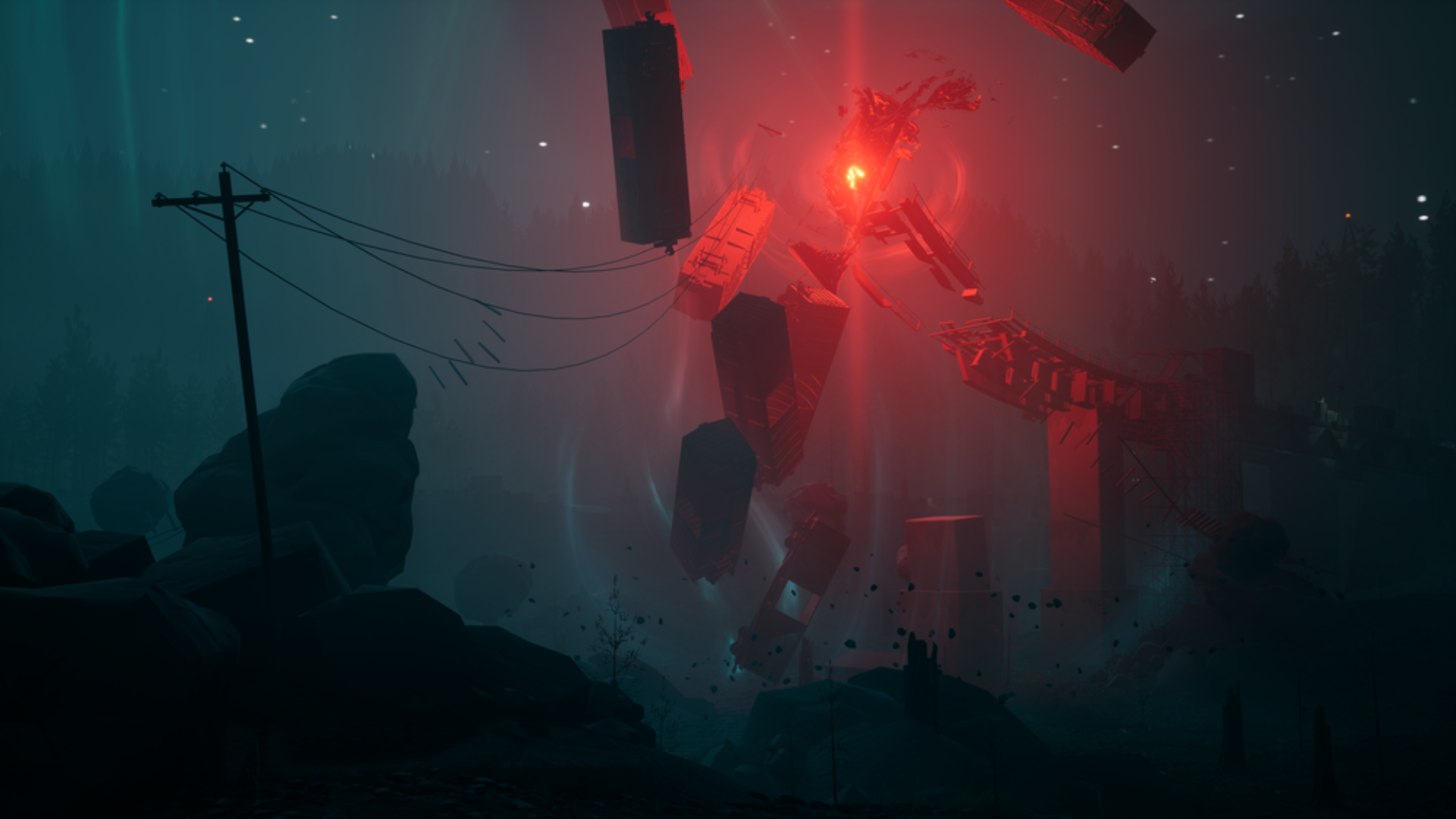
I didn’t spend much time outside of my car; most of the exploration happened behind the wheel. However, scavenging and fixing broken components did force me out of the driver's seat. Exploring abandoned houses and searching high and low for trinkets is second nature to me, but this time, it felt different.
It’s clear to me that this agitating sense of dread is integral to Pacific Drive’s liminal spaces and smothering atmosphere
Leaving the safety of my car made me feel uneasy; it was like someone had stripped me of all my armor. Every step I took from my safe haven filled me with dread as I weighed up the importance of what resources lay before me against how quickly I could get into my station wagon and drive away if things took a turn for the worse.
This conundrum stuck out to me the first time I saw Pacific Drive at Gamescom, but having played through a greater chunk of the survival game, it’s clear to me that this agitating sense of dread is integral to Pacific Drive’s liminal spaces and smothering atmosphere.
It’s a fun and refreshing twist on the usual survival game consequences and fear tactics. Instead of needing warmth, food, or water, you’re tethered to your car by an invisible string and can feel the tug of it every time you venture too far. This feeling is even explained by one of the characters who first talk to you over the radio, Francis. He describes how the vehicle is a remanent, an object that can last in the Zone, but something that can slowly take over the owner's thoughts and send them into an obsessive state.
Lofi beats to drive to
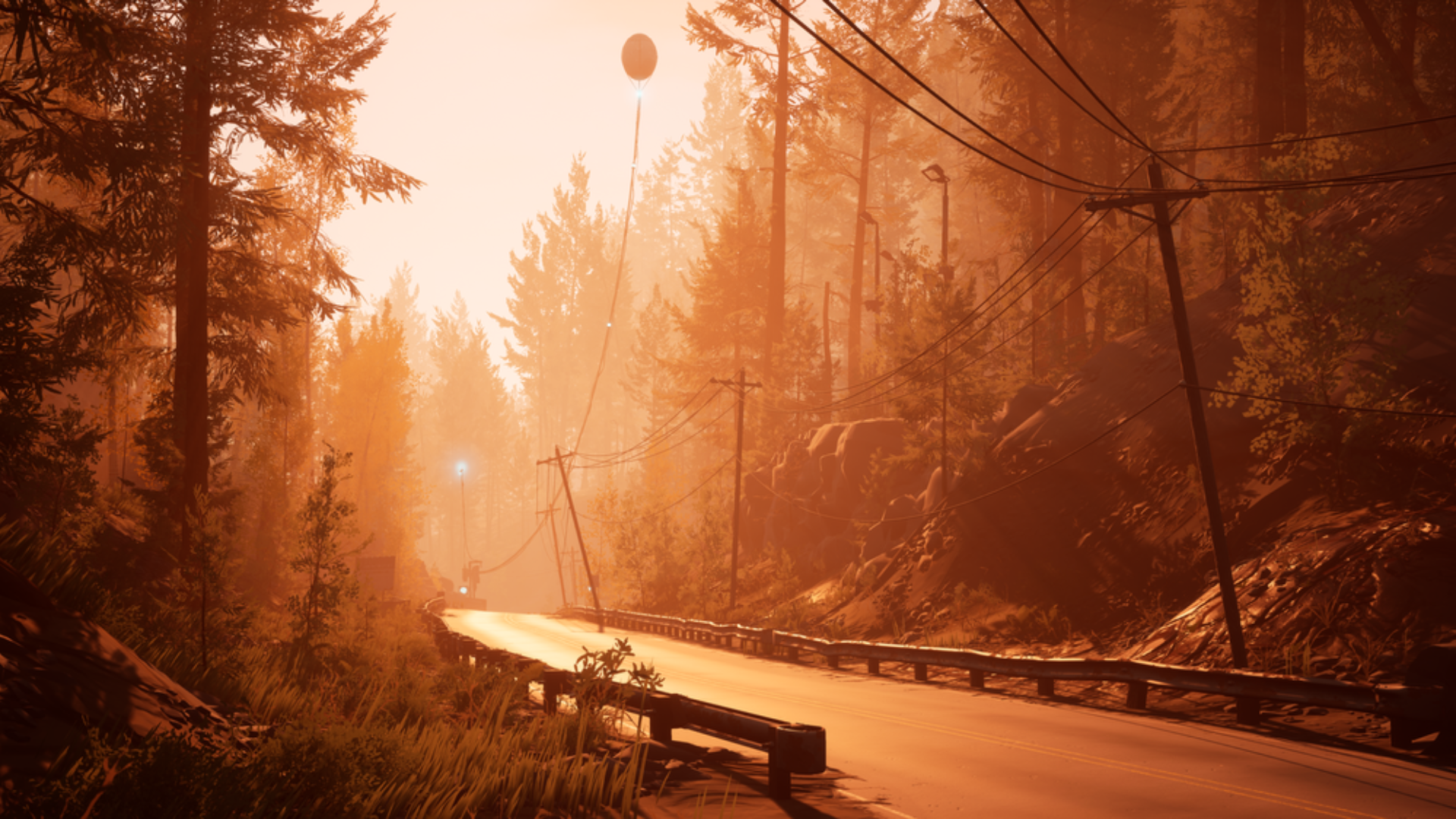
Despite the sense of constant impending doom, Pacific Drive is a joy to play. The detailed upgrading system, beautiful landscape, and exciting premise are precisely what you want from the best survival games. Even if I got rid of all these factors, I could still have fun in this strange space; driving around the mysterious pine woods and listening to the incredible songs on the radio was a brilliant experience.
There are over 20 licensed songs to chill out to and an original score by Wilbert Roget, an American composer known for his work on Call of Duty: WWII, Mortal Kombat 11, and Lara Croft and the Temple of Osiris. After hours of driving around in Pacific Drive, I’ve yet to find a song that I don’t absolutely love, and I can’t wait to listen to more.
There's still plenty to explore and discover in Pacific Drive, but after this first venture into its unknown world, I can safely say that while I may not be prepared for what is to come, I am very excited to see what happens next.
For more fantastic adventures, check out the best story games and the best single-player games, which are available to play and enjoy right now.

Elie is a Features Writer for TechRadar Gaming, here to write about anything new or slightly weird. Before writing for TRG, Elie studied for a Masters at Cardiff University JOMEC in International Journalism and Documentaries – spending their free time filming short docs or editing the gaming section for their student publications.
Elie’s first step into gaming was through Pokémon but they've taken the natural next step in the horror genre. Any and every game that would keep you up at night is on their list to play - despite the fact that one of Elie’s biggest fears is being chased.